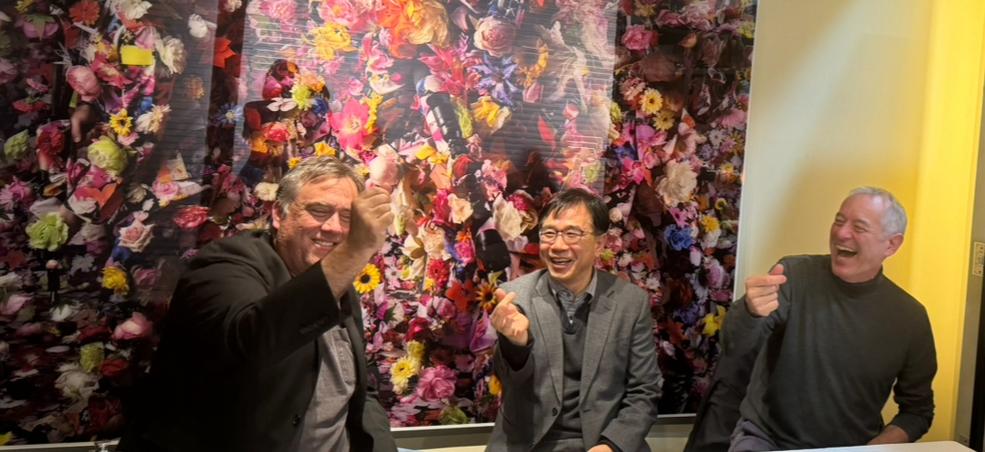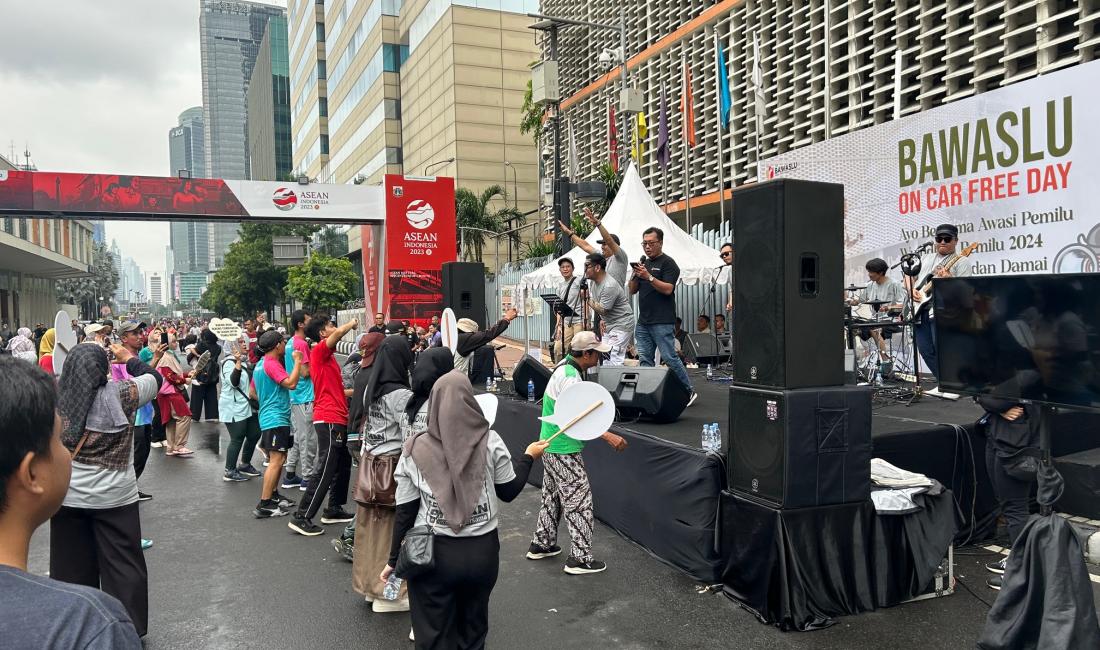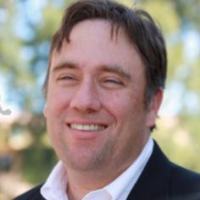How to Donate. Korea impeachment songs. Small-town mayor-president?
This is the monthly newsletter of Democracy Local. To subscribe to this newsletter, please email joe@democracylocal.com or fill out a form here.
DEMOCRACY LOCAL’S BEST OF 2024
Happy holidays. Democracy Local launched, softly, in early 2024. This publication, and the planetary community it’s building, are still small and fledgling. But we published more than 100 pieces and held a public event this year. Here are our 10 of our most popular items of the year.
Also: Recent good reads include a column from Scotland on the growth of children’s power worldwide (and the backlash against it); a report on attempts to undermine Indonesia’s democratic decentralization; and a three-part series from People Powered’s Greta Rios that shows us participatory democracy in Santa Ana Tzacuala, Mexico; Chipinge, Zimbabwe, and Masajja, Uganda.
DONATING TO DEMOCRACY LOCAL
If you are considering a year-end gift, you can support Democracy Local in two ways. First, by giving to Democracy International and democracy.community, which host our site. Second, by subscribing to the Substack version of Democracy Local.
WINTER DEMOCRACY CAROL
In the Seoul protests that forced the impeachment of South Korea President Yoon Suk Yeol, you might have heard a familiar holiday melody. It’s the tune behind the popular Latin American Christmas song, “Feliz Navidad,” but it’s about the president, his calling of martial law, and his failed coup.
“If Yoon Suk Yeol gets lost, it’s a Merry Christmas,” says the singer. Enjoy the whole thing here.
A SMALL TOWN MAYOR IN LIMBO
Just when it looked like Romania might get a small-town mayor as president, the election got thrown out.
All the news about the Romanian judiciary’s decision to annul the first-round results of the presidential election has ignored the candidate most affected.
She is Elena Lasconi, and she serves as mayor of the small city of Câmpulung in Argeș County, in the foothills of the Southern Carpathian mountains. Campulung has as population the same size as my small hometown in Southern California (27,000).
Lasconi finished second in the November first round, which was annulled. But she was the favorite to win the second round and the presidency, since the top vote-getter a right-wing populist Calin Georgescu whose base of support was narrow. The annulment came after the declassification of intelligence showing Russian attacks on the election.
If Lasconi can recover and win a rescheduled election, her record in local government would make her an intriguing president. She’s built infrastructure at a scale unusual for a small place, via 300 million lei in European Structural and Investment Funds. She’s added health care facailities, green spaces, tons of recreation (from basketball courts to ice rinks).
She’s also a very international mayor, building relationships and exchanging lessons with international organizations. In this era of planetary threats, even small-town mayors have to play on the global stage.
Perhaps I’m writing about Lasconi because of what we have in common: she’s also a journalist with a commitment to local democracy. And perhaps why I can’t stop imagining how such a mayor might use a national presidency to build up local governments and link them to each other and to counterparts. For Romania to grow and prosper, it needs to be stronger, locally and globally.
A TRILOGY: HOW CALIFORNIA AND THE WORLD CAN FIGHT TRUMP
After the U.S. elections, I devoted three columns to the coming fight against Trump. There was one column for each of three strategies.
First, I explained why my home state of California needs to form a planetary coalition with other local and provincial governments threatened by authoritarian national governments. (The good news: The Hague’s mayor is working on this).
Second, I explained why a tough fight against a fascist leader requires local cohesion and collaboration.
Third, I urged that the fight against Trump be more than just defense of the vulnerable. There needs to be an offense that beats Trump at his own game of threats and bullying. I found inspiration in the hip-hop artist Kendrick Lamar’s new album, and his 2024 feud with Drake.
More on these themes via the California Sun podcast.
WE ARE ALL BATMAN NOW
What do you call an elected official who engages in local democracy inside an authoritarian state?
In Turkey, the national government labels such people “terrorists”—at least in Kurdish reasons. The Turkish government recently fired three elected mayors, in the cities of Batman, Mardin, and Halfeti, in Kurdish regions of the country. They were replaced with appointed trustees.
This doesn’t bode well for Turkey, where local governments have pursued democratic innovation even in the face of opposition from the autocratic Erdogan regime. The Turkish government seems to stepping up attacks on Kurds in the wake of the fall of Syria’s dictatorship to rebels backed by Turkey.
Democracy Local will have more on this in the new year.
WATCHING
Inspiration. Democracy Local’s friends at Democracy International have offered five democracy activist stories to revive your democratic spirit. Check out this story, via a short documentary from Colombia.
Macondo Forever. Macondo is the fictional town in the late Gabriel Garcia Marquez’s masterpiece novel, Cien Años de Soledad (100 Years of Solitude). Now Netflix has brought the story of Macondo, its founding and its floundering, to the screen in a production that includes two of the author’s children. Democracy Local is loving it.
And if you’re looking for something local, democratic and funny to binge in the new year, Democracy Local highly recommends the Indian series Panchayat, about a village government. Available at Amazon Prime.
READINGS
Local governments are on the front lines of the war against disinformation. Now the University of Melbourne (Australia) and the Germany Marshall Fund have published a “playbook” helping cities respond to information. You can read it here.
Andreas Gross’ new book Landbote vs. NZZ, about the very local origins of direct democracy in the cantons and communes of Switzerland, has been published in German. Matt Qvortrup reviewed it here.
The forward-thinking folks at Democracy Next argue for citizens’ assemblies as an antidote to authoritarianism in Eastern Europe, and smartly question why the public wasn’t part of the development of the UK’s new end-of-life policy.
From our partners: The Future of Where about how local attachments may leave behind nations and states, and Asia Democracy Chronicles publishes a deeply reported piece on the local governance impacts of nickel mines on Halmahera Island, Indonesia.
COMING UP
• Applications to the Global Mayors Challenge, from Bloomberg Philanthropies, are due December 20. The 2025 challenge is about reimagining service delivery.
• Proposals due January 15 for Participedia's summer 2025 event, "Democratizing Human Rights." Details here.
• On January 24. the city of Berlin hosts a "Building Bridges" conference examining the 35th anniversary of the fall of the Berlin Wall. The conference also involves a look at four cities (including in Greece, Italy, and Poland). More details and registration here.
• In the new year, the Local Government Intelligence Unit, a non-profit membership organized devoted to make local democracy collectively stronger around the world, is ending its Global Local newsletter and launching its new Future Local Lab. '
• Involve, a UK-based organization in support of participatory and deliberative democracy, is looking for two trustees and a board chair. Applications due January 24.
• I’m interviewing Vanderbilt philosopher Robert Talisse, author of a trilogy of books on democracy (most recently, Civic Solitude) on Friday, January 31, at 7p at Book Soup in Los Angeles
PLEASE EDIT ME.
After giving a critical talk at the Deliberate R&D gathering Vancouver in September—in which I suggested that the citizens assembly committee was too slow and too focused on developing pilot projects—I decided to demonstrate a different path.
I wrote a model local law that gives everyday people the power to trigger such assemblies—representative mini-publics that deliberate and make recommendations—and pay for them.
Your edits and suggestions are welcome.
Also, in the process of doing research for the law, I came up against an annoying problem: the records of most citizens assemblies have not been preserved. And those that exist are often considered private, or proprietary, by the organizations that ran them or paid for them. That lakc of transparency is unacceptable for a public process.
We need a global clearinghouse of records and data from assemblies, so we can learn from the processes that have taken place. These are public processes—so the records should b e public. Please contact me if you’re interested in pushing for such a clearinghouse.
NEW RESEARCH
You might have a twin you didn’t know about!
OK, not exactly. But a big new research project gets underway: TWIN4DEM: Strengthening Democratic Resilience Through Digital Twins. Democracy International is part of it. And the project recently won a grant from Horizon Europe.
Here is the Democracy International explanation: “Together with 11 European partners, this project will use cutting-edge Computational Social Science (CSS) methods like natural language processing and dynamic simulations to investigate how democracies decline and, more importantly, how we can prevent it. By creating the first-ever digital twins of political systems in Czechia, France, Hungary, and the Netherlands, the team aims to provide new insights into the causes and effects of democratic erosion.”
You can learn more at https://lnkd.in/eyzDUVPz.
THE BIG DEAL
The city of San Jose, California, and Nivida have signed an agreement to integrate AI into the work of the city, and to train the local government workforce in AI. Not all the details of the deal have been released. Democracy Local will have more in the new year.
DEMOCRACY QUOTE OF THE YEAR.
“Two weeks on, and my concussion is getting better, day by day. The nausea has eased and the daily headaches are becoming less intense. I’m back on the streets.”
Luka Gviniashvili, a young pro-democracy protestor in Tblisi, Georgia, as told to Isobel Cockerell
SUGGETED LINKS TO LOCAL DEMOCRACY RESOURCES AND PARTNERS
Democracy International and democracy.community
Federation for Innovation in Demcoracy-Europe and FIDE North America
United Cities and Local Governments
International Observatory of Participatory Democracy
ASU Participatory Governance Initiative
Taiwan Foundation for Democracy
National Civic League’s Center for Democracy Innovation
Journal of Deliberative Democracy
Local Government Information Unit
The Future of Where
Global Citizens’ Assembly Network (GloCAN),
newDemocracy Foundation (Australia)
National Coalition for Dialogue & Deliberation





